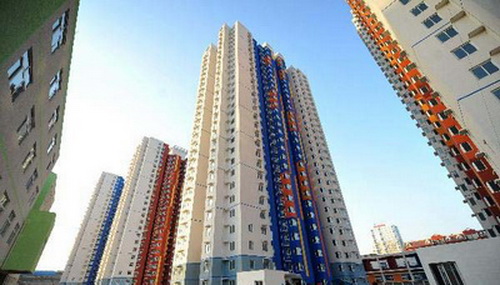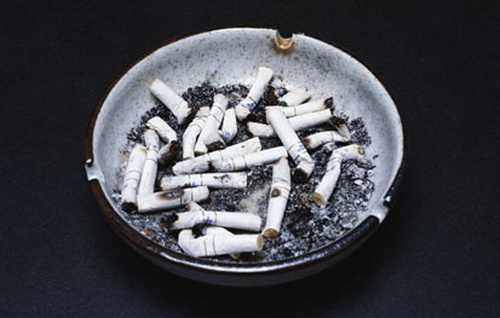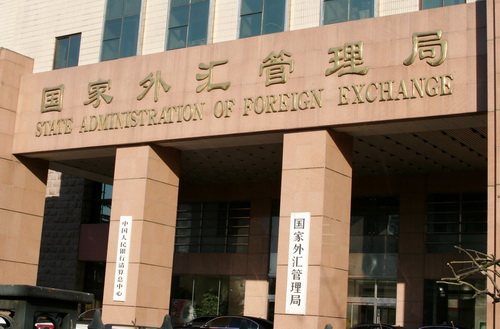Issue Wrap No. 502, Jan 10, 2010
Highlights from the EO print edition, Issue Wrap No. 502, Jan 10, 2010
2010 a Bad Year for Private Companies in Wenzhou
News, Cover
~ Last year was a tough year for private enterprises in Wenzhou, a city located in Zhejiang Province which is famous for its entrepreneurial spirit. The profit ratio of most private enterprises in 2010 was only somewhere between 1 and 3 percent which is even worse than their results in 2008 and 2009.
~ This low rate of profit is attributed to increased production costs, high material prices and the appreciation of the RMB.
~ Incapable of promoting their industry, private enterprises in Wenzhou have no choice but to shut down their factories. Statistics show that over half of the more than 2,000 bankrupted private enterprises were involved in the manufacturing sector or sectors related to manufacturing.
Original article: [Chinese]

China's Stealth Property Tax
News, Cover
~ The Ministry of Finance (MOF) and the State Administration of Taxation (SAT) have issued requirements for home-owners to pay a property tax during periods in which they let out their property rent-free and have also decided to consider land prices as part of the cost of the original house, indications that the MOF and SAT are gearing up to issue a new property tax.
~ However, since the issuance of property tax is becoming increasingly sensitive, they hid the announcement of these new policies in a notice about improving the employment conditions of the disabled.
~ "All the policies concerning property tax will be issued one by one instead of being released simultaneously," a local financial official said.
Original article: [Chinese]
High Inflation Forecast to Extend into Second and Third Quarter
News, page 6
~ The EO surveyed 56 economists from investment banks, research institutes and government departments about their outlook for economic conditions in China in 2011.
~ 58 percent of the economists thought that China's would continue to register high inflation levels into the second quarter of 2011; while 21 percent thought they would continue through to the third quarter. Another 8 percent of those surveyed were more pessimistic, predicting that high levels of inflation would continue through until the fourth quarter of this year.
~ Close to half of the participating economists predicted that macroeconomic policies would return to more neutral policy settings in 2011, while 27 percent predicted that the macroeconomic policy would be tightened modestly. Another 17 percent were concerned that policy might shift suddenly.
~ Close to half of the economists surveyed also predicted that housing prices would continue their upward momentum and that domestic stock markets would also lift in 2011 after a correction.
Original article: [Chinese]

Anticipation of Tobacco Tax Leads to Hoarding
Nation, page 9
~ During a recent meeting about China's tobacco industry and tax policy, an individual with the State Administration of Taxation said an adjustment to tobacco tax is likely to be introduced over the coming year.
~ As a result, speculation regarding the tobacco market is on the rise and some have begun hoarding tobacco products in case tax increases lead to a big jump in tobacco prices.
~ We still do not know the extent to which a new tax will effect the price of tobacco products.
Original article: [Chinese]

Lifting China's Poverty Rate: A Case Study in How to Decide who Qualifies as Poor
Nation, page 10
~ At the start of this year, China raised its official national poverty line to a net per capita income of 1,500 yuan per annum. The rise will push the size of China's officially "poor" population back to more than 90 million, similar to the number of poor registered at the start of last decade when the previous standard of net income of 1,196 yuan a year was used.
~ Over the course of the last decade, the number of poor, as measured by that standard, gradually shrunk to a little under 36 million.
~ The new standard still lags the World Bank's international poverty line of 1.25 US dollars a day.
~ Officials in Shizuizi village, located to the north of the city of Zhangjiakou in Hebei province, have already finished the task of ascertaining which residents of the small village are now classified as poor according to the new standard.
~ Of the village's 1,336 people, a total of 929 people have been classed as poor. While in Zhongli, the county that encompasses Shizuizi, the number of poor has increased from a little above 45,000 to almost 60,000 people.
~ The article goes on to describe the 5 steps that village officials go through to classify someone as poor and what kind of support people can receive from various levels of government.
Original article: [Chinese]
33 New Market Makers Enter Forex Market
Market, page 18
~ On the first day of trade in 2011, the State Administration of Foreign Exchange (SAFE) approved 33 new market makers to debut in the forex market, which will improve the liquidity of RMB exchange and promote the exchange rate system.
~ The new regulations would not have such a great influence on previous market makers, but will encourage competition and will help boost trading in forwards and swaps on the market.
~ Because the stability of China's foreign exchange structure, the changes will not greatly effect China's forex market.
~ But it is a signal that China is on its way to deepen RMB rate adjustment. "It is just one step of financial reform," an official said.
Original article: [Chinese]
New Reporting System for Fund Products Indicates Expansion of A-share Market
Market, page 17
~ The department of fund supervision of the China Securities Regulatory Commission is drafting a policy which requires ordinary fund products to be reported instead of approved before being issued, indicating the government watchdog's intention to expand the scale of the A-share market and lead capital to the real economy.
~ However, innovative fund products are still required to be approved before being issued.
~ This new policy also indicates the governments dermination to tackle housing price inflation. It's believed the property market will cool off if more capital is flowing to the real economy via the stock market.
Original article: [Chinese]

SAFE to Further Reform Exchange Rate Formation Mechanism
News, page 3
~ The State Administration of Foreign Exchange (SAFE) has established a market classification system, and has required banks and their subsidiaries that are not qualified to offer the services of forward exchange settlement and sales operations management to cooperare with their counterparts which possess such qualifications.
~ These measures outline SAFE's steps to reform the current mechanism of exchange rate formation and curb the current apprecition trend of the RMB.
~ Aside from the above measures, SAFE also issued a policy allowing Chinese companies to deposit export revenue in banks of foreign countries so as to avoid risks brought about by changes to exchange rates.
Original article: [Chinese] 
Survey of Business Leaders from China, Japan and South Korea
Corporation, page 25-26
~ The Economic Observer has conducted a joint-survey with Japan's Nikkei and Maeil Business Newspaper in South Koreau on high-level executives of key enterprises in the three countries. 347 enterprises responded to the survey.
~ The survey reveals that nearly 90 percent of Chinese business leaders, nearly 80 percent of entrepreneurs from South Koreau and 85 percent of Japanese high-level executives are optismistic about the future performance of the A-share market. Business elites from all three countries have forecasted that the economies of China, Southeast Asia and India and Southern Asia will have a greater influence on the global economy in the future.
~ Additionally, two thirds of those respondents agree that is is necessary for China, Japan and South Korea to sign a free trade agreement.
Original article: [Chinese]
The views posted here belong to the commentor, and are not representative of the Economic Observer |
Related Stories
Popular

- Economic Observer's 2010 Year End Special
- The top stories of 2010 displayed through slideshows, timelines, buzz words, maps, graphs,...
Interactive
Multimedia

- EEO.COM.CN The Economic Observer Online
- Bldg 7A, Xinghua Dongli, Dongcheng District
- Beijing 100013
- Phone: +86 (10) 6420 9024
- Copyright The Economic Observer Online 2001-2011
















